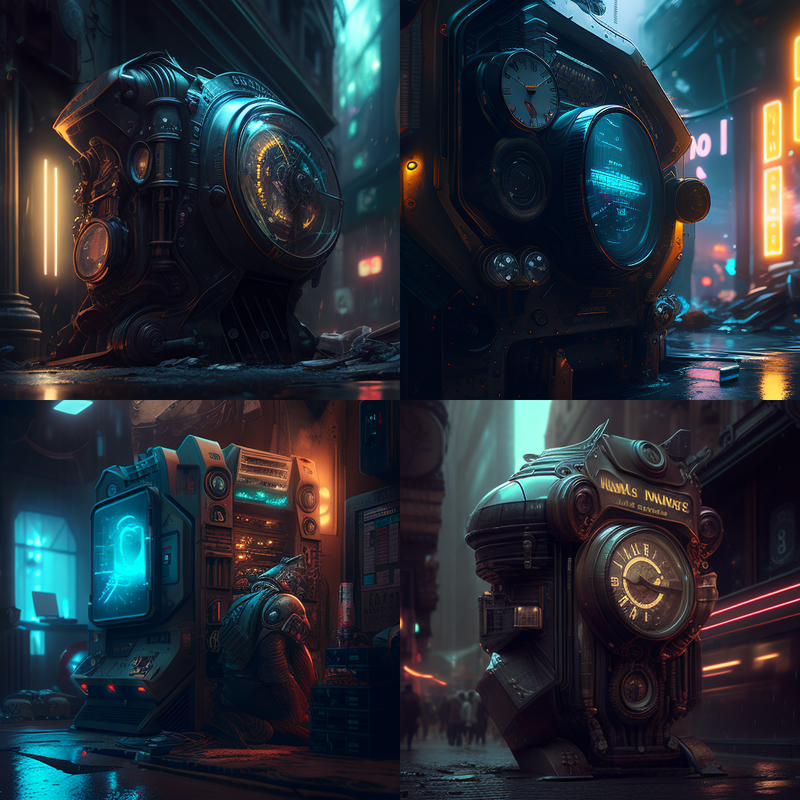Time travel is a speculative idea in which a person or item may travel through time, either to the past or to the future. This concept is frequently connected with science fiction and is not currently achievable with current scientific knowledge and technology.
Time travel is an enthralling notion that has captivated people's imaginations for decades. It is based on the belief that a person or item may travel through time, either to the past or to the future, seeing and perhaps altering historical events or experiencing the future firsthand. Time travel is frequently connected with science fiction, appearing in literature, movies, and television series. It is frequently shown as a tool of exploring various timelines, altering the fate of historical events, or just experiencing new eras.
Despite its appeal in literature, time travel remains completely speculative and is not currently achievable given current scientific understanding and technology. Physics rules, as they are now understood,make explaining how time travel may function challenging. Various models and hypotheses, such as the utilization of wormholes or the manipulation of spacetime, have been presented by theoretical physicists, however they are still entirely theoretical and require experimental proof.
Even if time travel is not yet achievable, it is a topic of continuing scientific and popular curiosity. Some physicists and philosophers are still investigating the concept of time travel and its implications for our knowledge of the cosmos and the nature of time. As our understanding of physics and technology advances, it is feasible that time travel will one day become a reality, allowing us to explore the past and future in ways never before possible.are now beyond our comprehension.
Finally, time travel is an intriguing notion that has captivated people's imaginations for decades. Although it is currently not achievable with present scientific knowledge and technology, it remains a vital topic of inquiry and discussion. Time travel continues to inspire new thoughts, hypotheses, and possibilities, stretching our understanding of the world and the nature of time itself.
Time travel is a possibility.
According to current scientific understanding and technology, time travel is not yet conceivable as of my knowledge cutoff in 2021. The principles of physics, as now understood, do not permit time travel. Various models and hypotheses, such as the utilization of wormholes or the manipulation of spacetime, have been proposed by theoretical physicists, but they remain entirely theoretical and lack experimental proof. In physics, it is still an unresolved subject, and significant study is being undertaken in this field. However, there is no experimental proof or scientific explanation for the idea of time travel at this moment.
Despite the dearth of scientific proof, the concept of time travel is a source of great debate and fascination. Many science fiction books and films have depicted time travel as a way of exploring various timelines, altering the result of historical events, or experiencing different eras. This has contributed to the vast public imagination surrounding time travel.
Even if it is not yet attainable, the concept of time travel raises crucial problems and calls into question our understanding of the nature of time and causation. For example, what would happen if a person could travel back in time and modify events? What would be the ramifications for the present and future? This brings up the idea of "paradoxes," or seemingly contradictory circumstances, which have been extensively studied in science fiction and philosophy.
Furthermore, time travel raises concerns regarding the nature of free choice and determinism. Does the fact that the past is fixed and immutable imply that the future is also predetermined and unchangeable? Would a person be able to influence the direction of their own and other people's lives if they could travel back in time and change events? These are difficult philosophical issues that are still being argued and investigated by scientists and philosophers alike.
To summarize, the concept of time travel continues to fascinate people's imaginations while raising crucial problems about the nature of time, causation, free choice, and determinism. Although it is not currently achievable with current scientific understanding and technology, the concept of time travel continues to be a popular topic of discussion and investigation. As our grasp of physics and technology progresses, we may one day have a greater understanding of the nature of time and the potential of time travel.
genuine tale of time travel
Despite the dearth of scientific proof, the concept of time travel continues to fascinate people's imaginations, spawning many books, films, and television series. From H.G. Wells' "The Time Machine" to the latest blockbuster smash "Interstellar," time travel has been a reoccurring motif in popular culture for over a century. Time travel is frequently depicted in these works of fiction as a way of exploring various timelines, affecting the result of historical events, or experiencing different periods in time.
Despite its prevalence in fiction, the notion of time travel is still under intensive scientific study and doubt. Based on our present understanding of physical principles, many physicists and philosophers believe it is exceedingly implausible, if not impossible. The theory of general relativity, for example, which explains the curvature of spacetime, does not allow for time travel to the past.
Aside from technological problems, the concept of time travel presents fundamental ethical and philosophical issues. What would happen if a human could travel back in time, for example, and what would be the ramifications for the present and future? Will they be able to affect the course of history and the lives of others? These concerns have been extensively studied in science fiction and philosophy, yet they remain unanswered.
Despite physical and philosophical hurdles, the concept of time travel remains a popular topic of contemplation and investigation. Many scientists and philosophers are still investigating the concept of time travel and its implications for our knowledge of the cosmos and the nature of time. While time travel remains totally speculative and unproven scientifically, it continues to generate new ideas, hypotheses, and possibilities.
Finally, the concept of time travel continues to be a popular and compelling subject, spawning innumerable stories and works of fiction. While time travel is not currently achievable with present scientific understanding and technology, it remains a vital issue of inquiry and discussion, stretching the frontiers of our understanding of the cosmos and the nature of time itself.
What exactly is future time travel?
The capacity to travel through time and experience events that occur in the future is referred to as time travel into the future. This concept is based on the assumption that time is a physical dimension that can be traversed in the same way that space can. In physics, time dilation, a prediction of Einstein's general theory of relativity, says that time seems to flow slower for an observer traveling at high speeds relative to a stationary observer. This effect can cause a variation in how the two observers perceive the passage of time, with the traveling observer appearing to experience time more slowly.
While time travel into the future is still completely speculative and has yet to be scientifically confirmed, it is thought to be a possibility based on our present understanding of physics. However, there are presently no practical methods for attaining future time travel, and it remains an open issue in physics and the subject of continuing research and discussion. Despite the difficulties, the concept of time travel into the future continues to captivate people's imaginations and is a significant issue in science fiction, philosophy, and scientific inquiry.
How long can time travel be true?
Time travel has not been scientifically demonstrated to be true as of my knowledge cut-off date in 2021, and it remains merely speculative. There is currently no empirical proof or experimental data supporting the reality of time travel. Many variables influence the possibility of time travel, including our grasp of physics and the advancement of advanced technology.
At the moment, time travel is mostly based on theoretical physics, such as Einstein's general theory of relativity, which proposes that time is a physical dimension that may be warped by gravity. These hypotheses, however, are still the topic of much dispute and conjecture, and have yet to be proven by experimental data.
As a result, it is impossible to forecast how many years, if ever, time travel will become a reality.
Despite this, time travel is a source of fascination and curiosity in science, science fiction, and popular culture.The concept of time travel and its implications for the nature of time and reality continue to inspire new thoughts and possibilities, pushing our understanding of the cosmos to new heights.
Will a time machine actually be invented?
The existence of a time travel machine has not been scientifically verified as of my knowledge cut-off date in 2021, and it remains merely speculative. Despite this, the concept of time travel remains popular in science fiction, philosophy, and popular culture.
Many variables influence the possibility of time travel, including our grasp of physics and the advancement of advanced technology. According to some theories, such as Einstein's theory of general relativity, our current understanding of physics implies that time travel is conceivable. These hypotheses, however, are still the topic of much dispute and conjecture, and have yet to be proven by experimental data.
It is not conceivable, given the current level of our knowledge and technology.to forecast whether or not a time machine will be created. Regardless, time travel continues to inspire new thoughts and possibilities, stretching our knowledge of the cosmos and the nature of time itself. While time travel remains a fascinating and exciting subject, it is vital to approach the notion with a fair dosage of skepticism and to be aware of the limitations of our present understanding of physics and technology.

